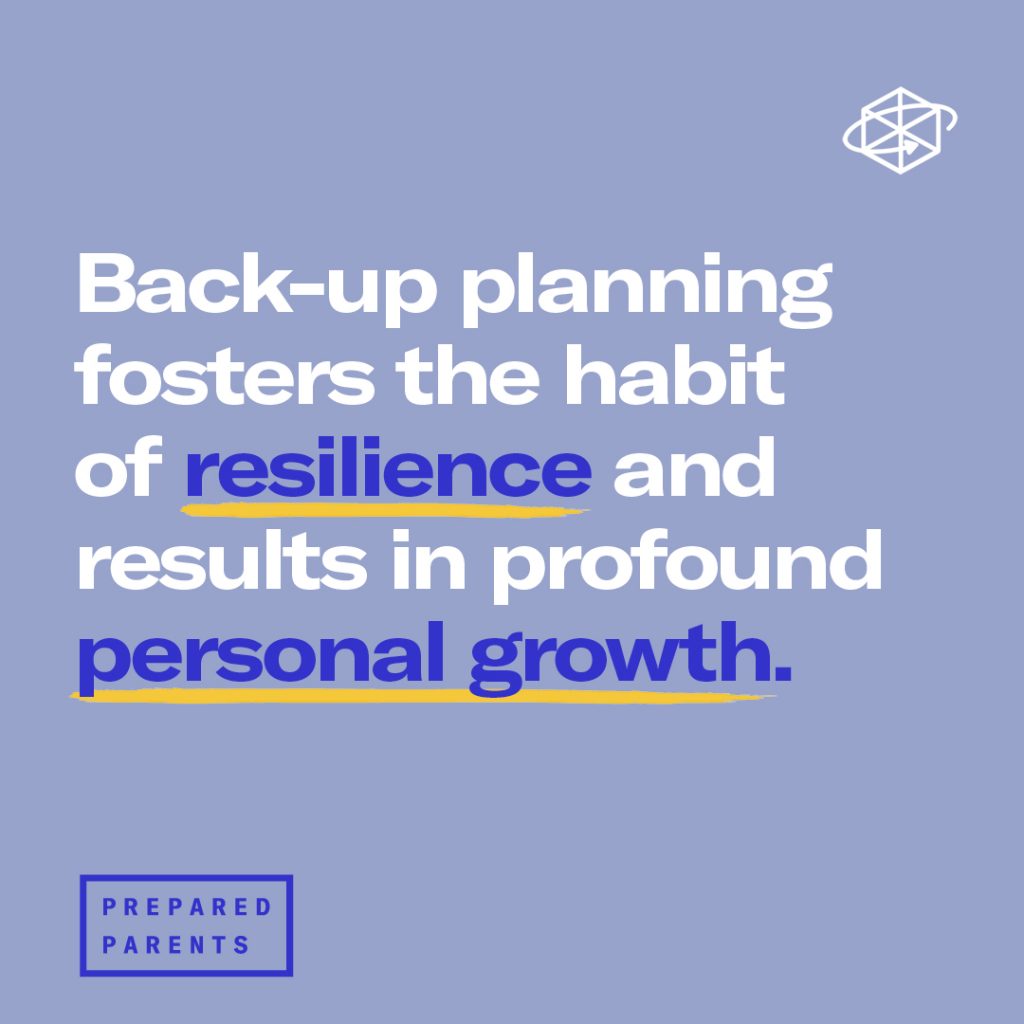Every year you spend countless hours making plans, mapping out options for your kid’s after-school care, academic enrichment, and extra curriculars. But no matter how well you craft a plan, nothing is ever set in stone. When life gets disrupted by weather events, economic crises, and even global pandemics, it’s always a good idea to have a back-up plan.

When you have a back-up plan, it’s easier to pick yourself up and move on with life. Multiple path planning lowers anxiety and builds confidence and resilience in kids. One of the best ways to build and model resilience is to be proactive, try to solve a problem, and take initiative, all of which give you motivation to keep moving forward.
Resilience, one of the 16 Habits of Success, is the foundation of being prepared for school and life. Psychologists define resilience as the process of adapting well in the face of adversity, trauma, tragedy, threats, or significant sources of stress. Fostering the habit of resilience results in profound personal growth. It helps us stay optimistic despite unexpected stresses. Resilience also helps us overcome setbacks and learn from failures. It leads to greater happiness, more success, and better health.
Even though plans may get canceled, don’t dwell on what could have been. Here’s an opportunity to plant a growth mindset by coming up with an alternate.
- Involve your kids in the conversation. For families with very young kids, do the planning yourself, but let the kids know why you made the choices you did. Are there habits and skills you hope to see them develop, or interests they already have you want to help them pursue? Exploring an interest your kid already has can ignite a passion that’s an important first step in discovering their sense of purpose and identity.
- Consider the non-negotiables. What are those things that cannot be changed? Your work schedule? The family budget? Obligations to other family members? How do these work into your alternate plan? Is there any room for compromise?
- Identify your options. You can develop a potentially endless list of options to replace your original plan. Some may even be more exciting alternatives you might not have considered previously.
- Recognize what you can’t do. Be nimble and don’t over-promise. Always keep an eye on the future: if not now, maybe we can do this later.
- Focus on your ultimate goal. When you drew up your first plans, what was your hope for your time together? How can you still achieve that goal?
Keeping your ultimate goal front of mind will help you to land on the best alternative when life throws you a curveball.
Five Steps to Building a New Habit
- Working on one habit at a time will prevent you from depleting your resources of willpower and increase the odds of success.
- Make a daily commitment. Instill the habit into your life so that it becomes routine by committing to it daily.
- Take small steps to turn a habit into automatic behavior. This micro-commitment should be easy to maintain so that you stay consistent.
- Create accountability. This is an opportunity to model habit building for your kid.
- Make it a part of your core identity. Build a lasting habit by making it a reflection of who you are on the inside.


